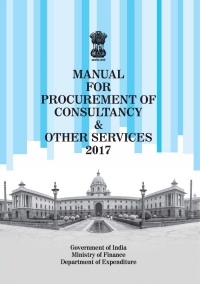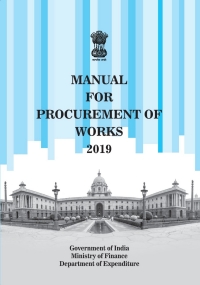The GFRs 2017 have defined 5 kinds of tenders as below:
i. Advertised Tender Enquiry
Invitation to tenders by advertisement should be used for procurement of goods of estimated value of Rs. 25 lakhs and above. In such cases, the tender enquiry should be advertised on the Central Public Procurement Portal (CPPP) at www.eprocure.gov.in and on GeM. An organisation having its own website should also publish all its advertised tender enquiries on the website.
ii. Limited Tender Enquiry
In a limited tender enquiry, various vendors (more than three) are empaneled by the Government Department for goods that are procured regularly by the Department. Usually Limited Tender Enquiry is adopted when the estimated value of the goods to be procured is less than INR 25 Lac.
iii. Two-Stage Bidding
For purchasing high-value plant, machinery, etc. of a complex and technical nature, bids may consist of two parts, as below:
a. Technical bid consisting of all technical details along with commercial terms and conditions; and
b. Financial bid indicating item-wise price for the items mentioned in the technical bid.
iv. Single Tender Enquiry
Procurement from a single source may be resorted to in the following circumstances:
a. When only a particular firm is a manufacturer of the required goods, to the best of the concerned government department's knowledge.
b. In case of an emergency, when it is necessary to purchase the required goods from a particular source. In such cases, the reason for such a decision must be recorded, and approval of competent authority must be obtained.
c. When specific standardised machines or spare parts have to be acquired in order to be compatible with existing sets of equipment (on the advice of a competent technical expert and approved by the relevant authority).
v. Electronic Reverse Auctions
An Electronic Reverse Auction is a type of online auction in which the traditional roles of buyer and seller in an auction are reversed. In an ordinary auction, buyers compete to obtain goods or services by offering increasingly higher prices. Conversely, in an electronic reverse auction, there is one buyer and many potential sellers. The sellers compete to obtain business from the buyer, and prices will typically decrease as the sellers underbid each other.



















